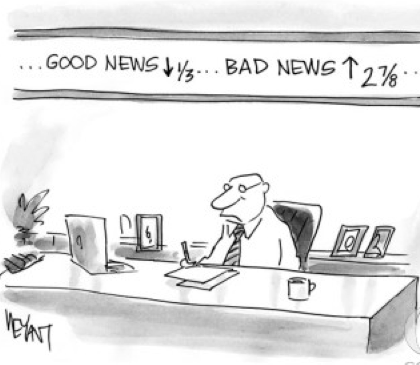
Kremlin "Surveillance"


I hope the above rules could be helpful for the ones of you that are still lacking discipline in trading. I still find them extremely relevant and believe that they are a great piece of trading/investment wisdom.




1) The stock market is never obvious. It is designed to fool most of the people, most of the time.
2) Play the market only when all factors are in your favor. No person can play the market all the time and win.There are times when you should be completely out of the market, for emotional as well as economic reasons.
3) Do not use the words “Bullish” or “Bearish.” These words fix a firm market-direction in the mind for an extended period of time. Instead, use “Upward Trend” and “Downward Trend” when asked the direction you think the market is headed. Simply say: “The line of least resistance is either upward or downward at this time.”Remember, don’t fight the tape!
4) The game of speculation is the most uniformly fascinating game in the world. But it is not a game for the stupid, the mentally lazy, the person of inferior emotional balance, or the get-rich-quick adventurer. They will die poor.
5) The only thing to do when a person is wrong is to be right, by ceasing to be wrong. Cut your losses quickly, without hesitation. Don’t waste time. When a stock moves below a mental-stop, sell it immediately. (more…)

Why do some win in the market and some lose? Some thoughts on winning and losing:
Winning Trader’s Traits
Losing Trader’s Traits